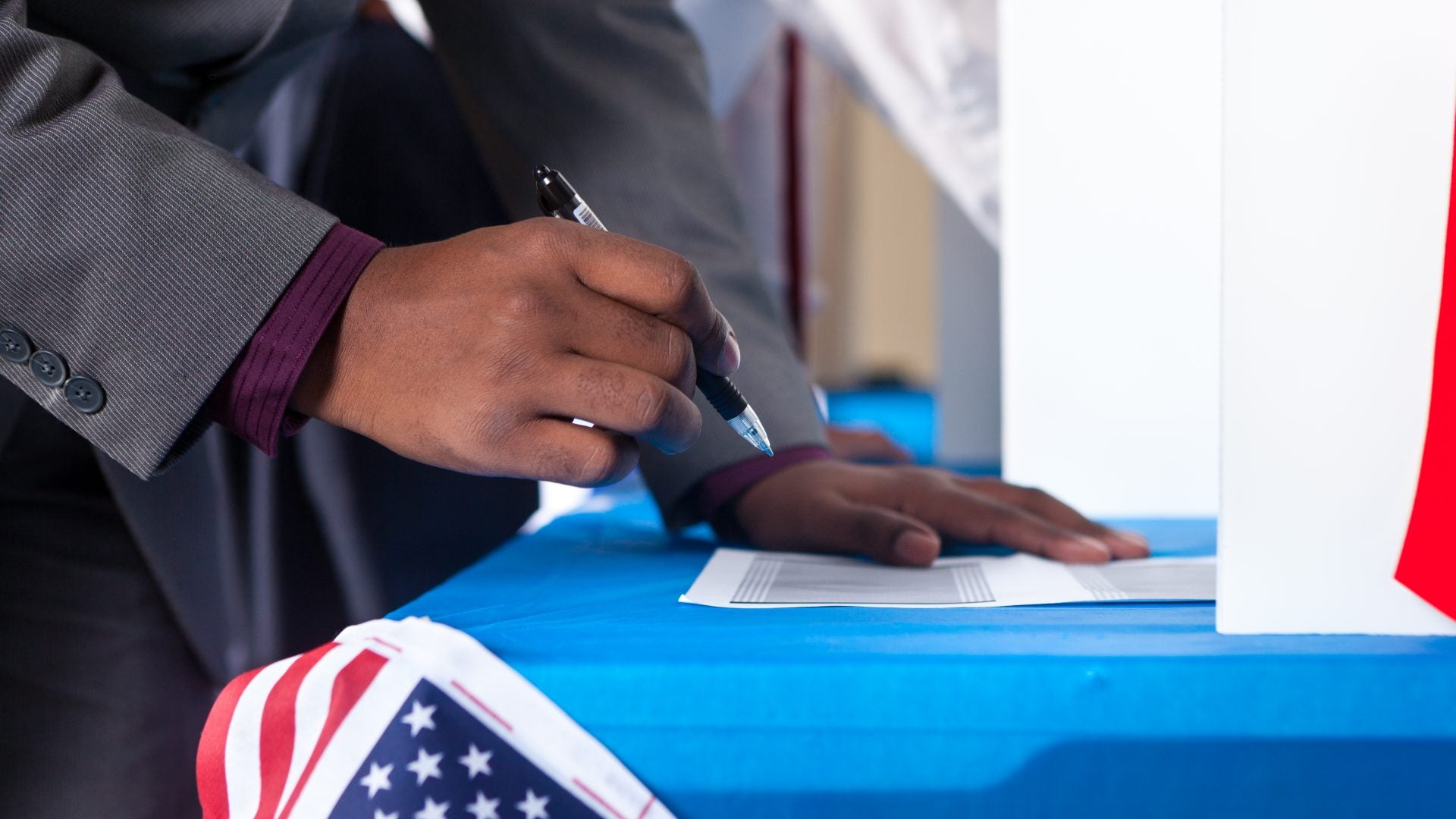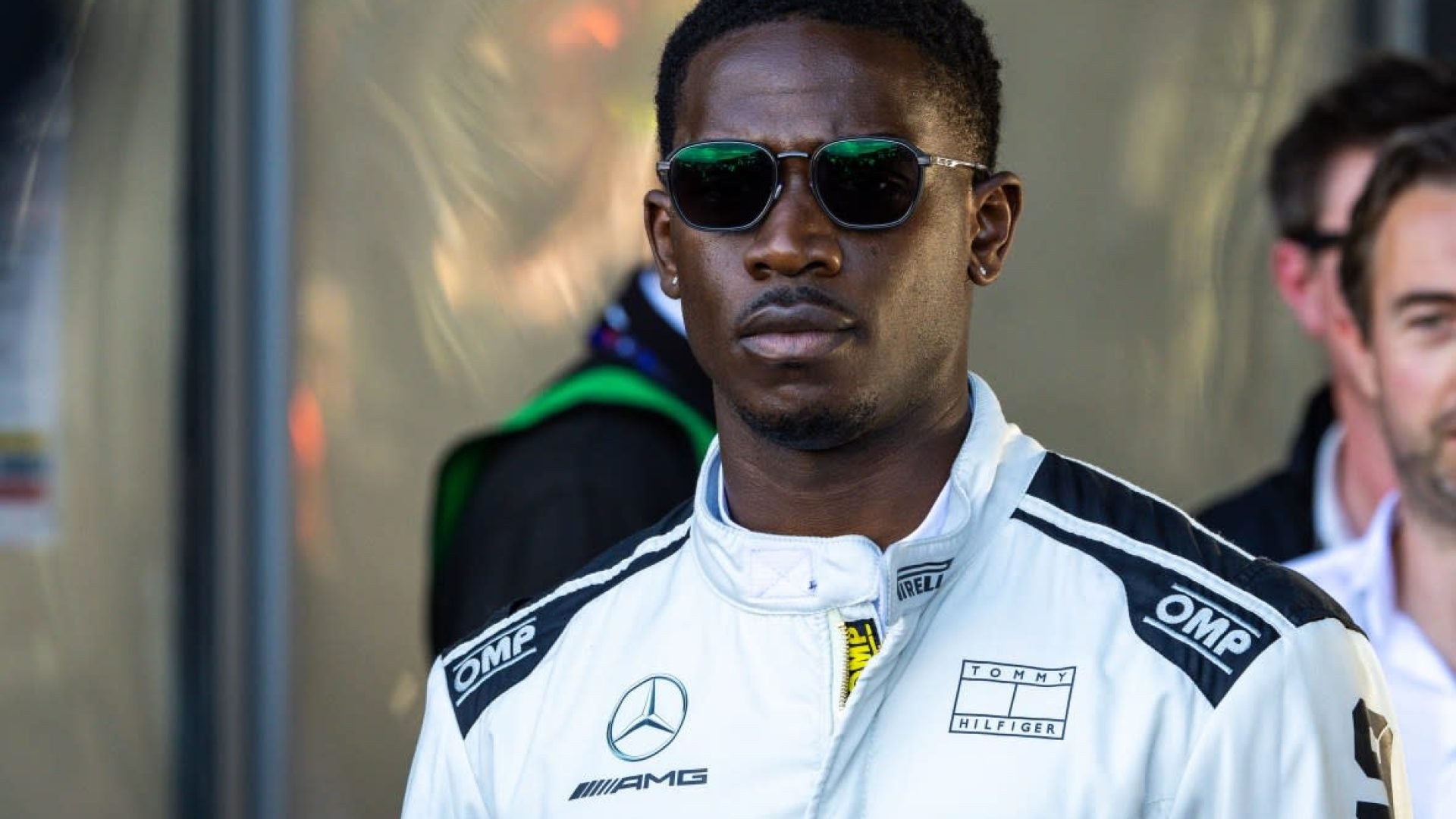
It’s the first week of November, which means the nation is officially one year away from the 2020 Presidential election. And this week’s elections gave some hope to those working to defeat Donald Trump.
In Virginia, Democrats took control of both the State House and Senate for the first time in decades, and the Democratic nominee for Governor won in Kentucky – one of the reddest states in the union. Perhaps one of the biggest wins last night were those who were unable to vote, as Governor-elect Andy Beshear pledged to restore voting rights to more than 100,000 people with criminal records, a disproportionate number of whom are Black. With one year to go, the battle over voting rights is already heating up.
In the past week alone, three lawsuits were filed in Texas, North Carolina, and Michigan challenging restrictions to early and absentee voting. Republicans in the U.S. Senate blocked the For the People Act of 2019, which would establish automatic voter registration and campaign finance reform. And the Georgia Secretary of State announced a voter registration purge that targets anyone who failed to vote in the last several years, potentially canceling 330,000 voter registrations.
Unfortunately, voter purges are becoming increasingly common. Former Georgia Secretary of State Brian Kemp’s office canceled more than 1.4 million voter registrations during his tenure, and more than 500,000 in 2017 alone – the largest single voter purge in U.S. history. Many believe the 2017 purge contributed to Stacey Abrams’s loss of her historic bid for governor by only 1.4 percentage points.
This action was particularly questionable as Kemp was Abrams’ opponent, overseeing his own election after refusing to step down. In a recent tweet, Abrams pointed out that “voter suppression [is] no longer exemplified by billy clubs and hoses. It begins with removing voters from the rolls or preventing their registration.” As Abrams suggests, while the methods have changed, these recent developments disturbingly mirror the barriers to voting Black people have faced for generations.
Even after the 15th and 19th amendments to the constitution guaranteed the rights of Black men and all women the right to vote respectively, Black people faced barriers – including violence, intimidation, poll taxes, and literacy tests – to participating in free and fair elections. It wasn’t until the passage of the Voting Rights Act of 1965 that Black people were able to more fully exercise this essential right of citizenship. In Mississippi alone, Black voter registration increased from a mere 6.7 percent in 1965 to 59.8 percent in 1967.
Despite the law’s success, in 2013, the Supreme Court struck down a key provision requiring jurisdictions with a history of voter discrimination to get federal approval of changes to their voting laws. In a 5-to-4 decision, the court argued that the Voting Rights Act was no longer needed precisely because it had been so successful. In her dissent, Justice Ruth Bader Ginsburg countered, “throwing out preclearance when it has worked and is continuing to work to stop discriminatory changes is like throwing away your umbrella in a rainstorm because you are not getting wet.” The same day the decision came down, states began implementing restrictive voting laws that had previously been blocked.
Despite this new era of voter suppression – including halts to early voting, polling location closures, and hours waiting in long lines to vote – Black voters continue to have high political engagement. As a result, we are seeing discussions ramp up over the ability of Democratic candidates to quickly attract the “Black vote,” particularly in the early primary state of South Carolina, underscoring the importance of what is believed to be the party’s most loyal constituency.
Still, most Black voters feel politicians and political parties don’t authentically care about them or their issues. Many feel that after the primaries, candidates move to pursue the coveted “swing voter” and cease listening to their concerns, or fail to meaningfully follow-up on primary campaign promises. And the political infrastructure backing candidates fail to adequately ensure Black voters can actually participate in the election. It is evident that our democracy suffers from the twin problems of voter suppression and voter neglect.
As the country continues to diversify, candidates simply can’t afford to ignore Black people, or communities of color broadly. Next year alone, seven million young people of color will be able to vote, and must be able to participate with ease. As our country continues to diversify, this generation will soon be in the majority and what happens to them will determine the fate of the entire country. It is imperative that their concerns are heard.
Building off of her experience last year with voter suppression, Abrams recently announce Fair Fight 2020, a 20-state voter protection initiative, providing resources for battleground states to begin building their voter protection programs. This is significant as many state parties do not yet have the resources for such an effort, and typically don’t start their voter protection plans until the general election. With one year out, local and national candidates, lawyers, and volunteers must take Abrams’ lead to help voters understand and navigate potential hurdles now. We know this works. In 2018, MOVE Texas was able to get more than 21,000 new young voters to the polls in a state with some of the most restrictive voter registration laws in the country. And we must, of course, fight to restore and strengthen the power of the Voting Rights Act.
In addition to the 2020 election, next year will also mark 100 years since the 19th amendment was ratified. But just as it was true then, Black people are still fighting for the right to vote. We must sound the alarm and make voting rights a top issue in the primaries, demanding every candidate and every debate address this issue. We have more than enough evidence that our elections are fragile, but our votes remain powerful.
Tracey Ross is a writer and advocate who leads the All-In Cities initiative at PolicyLink, a national research and action institute advancing racial and economic equity.





